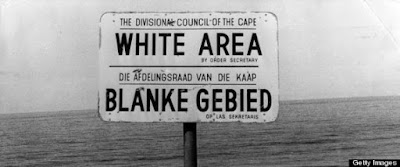Client 98
No pictures for this post.
But listen to the words.
They come from the Lanterman Developmental Center, a state-run board-and-care facility in Los Angeles County that houses roughly 100 men and women with conditions such as cerebral palsy and autism.
'On the morning of Nov. 6, 2012, an aide was helping Client 98 from the shower to the bed when the aide noticed drops of blood on the floor. A health services specialist found that the woman had a tear in her genital area.
An on-site physician examined Client 98, whose age was not included in public records, and concluded that someone might have sexually assaulted her.'
Drops of blood on the floor. This nameless woman had been raped so violently that it had torn her.
“It was some type of blunt force trauma, but I cannot tell what,” said a nurse who examined her, according to public records. The nurse confirmed an assault had occurred.
They are the words on paper. They do not tell us the name or the age of this unknown woman, who could have been eighteen or eighty. They do not tell us what type of disability she had - whether she was unable to move whilst being brutalised, or whether she was held down, her screams unheard or muffled. They don't tell us how she felt, or whether she could articulate what had happened to her. We do not even know her name.
Drops of blood on the floor.
Remember that, because the rest of that story is couched in the language of the service provider, the language of the disability sector. The story of 'Client 98' is embedded in compliance reports here - http://www.cdph.ca.gov/programs/LnC/Pages/DevelopmentalCenterActions.aspx - and almost as an afterthought. The dehumanising of people with disability, playing out today, right under your noses.
It's a well known tradition in the disability sector. Rape a woman, it is an 'incident'. Torture a man, it is a 'breach of compliance'. Drag a girl across the room by her hair, it is a 'case'. Murder, neglect, rape, torture, abuse - reduce those words to the language of the service provider, the language of 'administrative error', and it almost seems acceptable. You could almost sleep at night, even if it sometimes disturbs you during a game of golf.
Think about Client 98 for a moment, and see those drops of blood. They are steadily marking a trail from the shower to her bed, drop by drop, telling the story she cannot.
Now listen to the words that come after.
Rape as administrative error or 'system issue', brutality as 'deficiency.' Words that help you sleep at night, the bureaucrat's Serapax.
The information above comes from a newspaper article - http://blogs.kqed.org/newsfix/2014/03/27/130697/abuse-findings-continue-California-developmental-centers - from the Centre for Investigative Reporting, an organisation which has no parallel in Australia. The story of Client 98 - and thousands like her - are embedded within compliance reports and reviews and reports - but you have to care enough to look. You have to care, make available enough funds, have enough INTENT. The investigative reporting was carried out by the Center for Investigative Reporting's 'Broken Shield' project. You can read about their work here.
I can hear the responses of aging parents of institutionalised men and women in Australia already. But that is in America! they will cry. Or 'those things happen, but they are isolated cases', they say. Or even 'abuse happens everywhere, even in group homes!'
Some of those things hold true - abuse happens everywhere, in group homes as well as in institutions. Abuse is prevalent at the hands of carers, too, for people living in family homes, or as 'resident abuse' where people will be 'placed' with others who abuse them. And really, they are just more words, aren't they?
Statistics sometimes speak louder than words, even when they are couched in the language of the bureacrat. In Melbourne, where 'incidents' are often not reported or recorded, the Department of Human Services recorded 112 cases of alleged "staff-to-client" abuse in 2011-12 in government and community managed housing for the intellectually disabled. That reflects the statistics in other Australian states, but 'evaluations' are rarely made public and 'incidents' are burdensome to report or record. Abuse is more prevalent in institutional settings, and you are more likely to get away with it. You can rape Client 98, and nobody will ever tell - unless you're unfortunate enough to accidentally choose someone who could communicate or testify, or someone who hasn't been sterilised or put on birth control. Most times, that won't happen, especially if you're careful. Your secret is safe with us.
Institutional abuse isn't just an issue around government run institutions, nor private ones. It's an issue around choices in housing and support for people who have a dearth of good choices. Choice should never include rape or torture or abuse at the hands of those with power.
We disabled people watch as the reports steadily leak in, one by one. Murder, rape, torture, neglect, abuse, brutality by brutality, report by report, inquest by inquest. They are recorded on the Disability Clothesline wall -https://www.facebook.com/groups/disabilityclothesline/ and in the reports by disability rights groups. They fall to the ground softly, unwatched and unheard by bureaucrats and people who are unwilling to watch or listen.
Like drops of blood on a shower floor.



Comments
Post a Comment